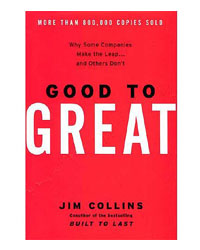
Today I came as I was checking out a blog I frequent, I came accross a book review of Velvit Elvis: Repainting the Christian Faith by Rob Bell. I was quite interested to see what it said because I had seen one of Rob Bell's videos and saw his book in a store. For those of you who do't know Rob Bell, he is a the kind of guy who puts the 'hip' in discipleship. He's got the bleached blond hair, the post-modern coffee house intellectual glasses, etc.
Anyways, the book review brought up 5 problems with Bell's writing. All 5 being in conflict with what the Bible says.
1. His View of the Bible as metaphor
2. His Understanding of the Christian Faith
3. His View the Nature of Sin
4. His View of God’s Faith in Man
5. His view of the Nature of the Atonement
The most scary was Bell's view of God's faith in man. Here is is a quote from the book review with the Bell's words in italics:
The self-ward bent of Bell’s teaching continues when he speaks of God’s
faith in man. Bell adopts his self-professed rabbi Ray VanderLaan’s teaching
that Jesus chose his disciples just like every other rabbi of his day - because
he believed in their innate abilities. In one of the most painful parts of the
book, Bell reminds us of the story found in Matthew 14:22ff. where Peter rushed
out of the boat to meet Jesus walking on the water. Peter began to sink and
Jesus rebuked him for his lack of faith.
“Who does Peter lose faith in? Not Jesus; he is doing fine. Peter loses
faith in himself. Peter loses faith that he can do what his rabbi is doing. If
the rabbi calls you to be his disciple, then he believes that you can actually
be like him. As we read the stories of Jesus’ life with his talmidim, his
disciples, what do we find frustrates him to no end? When his disciples lose
faith in themselves.....Notice how many places in the accounts of Jesus life he
gets frustrated with his disciples. Because they are incapable? No, because of
how capable they are. He see what they could be and could do, and when they fall
short if provokes him to know end. It isn’t their failure that’s the problem,
it’s their greatness. They don’t realize what they are capable of....God has an
amazingly high view of people. God believes that people are capable of amazing
things. I’ve been told I need to believe in Jesus. Which is a good thing. But
what I’m learning is that Jesus believes in me....God has faith in me.”
In fact, according to Bell, God has such great faith in the abilities
of men that Jesus “left the future of the movement (the church) in their hands.
And he doesn’t stick around to make sure they don’t screw it up. He’s gone. He
trusts that they can actually do it.” This is a shocking reinterpretation of the
Christian faith. When the gospel becomes the message of God coming to earth and
dying on a cross to help men believe how great they really are--something is
horribly amiss. This has the stench of blasphemy.
I completely agree that this has the stench of blasphemy. According to the Word of God in 1 Corinthians 1:26:
Brothers, think of what you were when you were called. Not many of you were wise
by human standards; not many were influential; not many were of noble birth. But
God chose the foolish things of the world to shame the wise; God chose the weak
things of the world to shame the strong. He chose the lowly things of this world
and the despised things and the things that are not to nullify the things that
are, so that no one may boast before him. It is because of him that you are in
Christ Jesus, who has become for us wisdom from God that is, our righteousness,
holiness and redemption. Therefore, as it is written: "Let him who boasts boast
in the Lord."
With all this in mind it must be said that when I first saw the video with him, I enjoyed it. I think it had a great message. I guess this just shows that we need to be careful. Just because a guy has a cool video or two doesn't mean that we should listent to his every word.
Another thing that came to mind was that because the video I saw was cool and hip and had emotional music, it had more effect on my emotions as opposed to my head knowledge. For instance, if a 60 year old preacher in a suit on Sunday morning gave the same message, it would not have had the same impact. Maybe guys like John Piper and D.A. Carson should give their sermons with cool music and just casually talking while walking towards the camera and more people in the post-modern mindset would appreciate it. I guess this goes to show that the medium has a large effect on the message.
If this has interested you I encourage you to read the whole review, which is linked at the top of this post.



